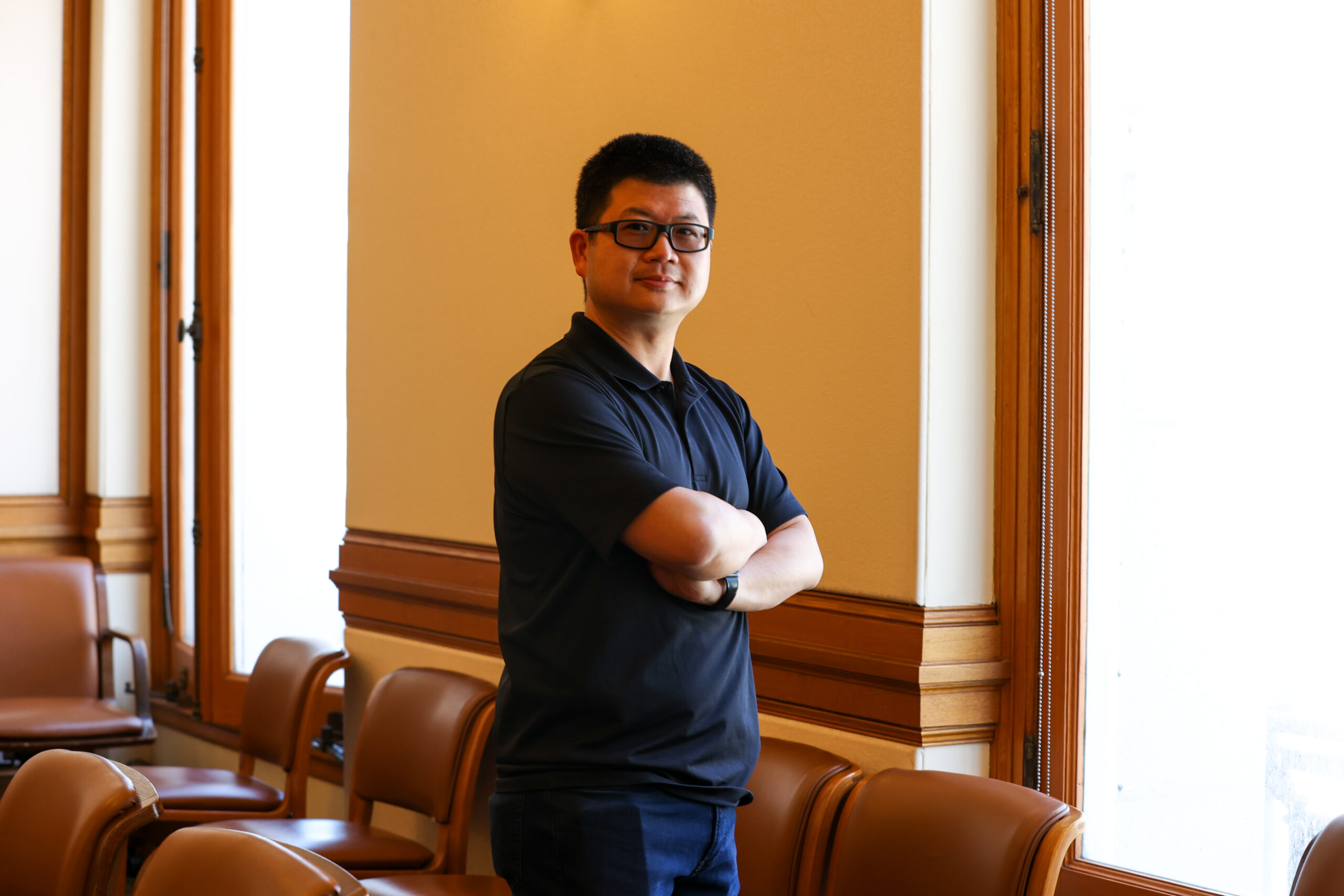Simon Kuang’s boba tea shop was constantly targeted for vandalism and graffiti during the pandemic. One time, he said, someone walked in and made off with the tip jar.
To Kuang—who employs a host of workers who don’t speak English—the attacks feel targeted. Criminals tend to prey on victims with language barriers, he said, because they think “we won’t fight back.”
The Chinese immigrant business owner shared his story this week to support a pilot project that would link crime victims who aren’t fluent in English with translators to help them find the services they need. Supervisor Gordon Mar pitched the idea, which his colleagues passed by a unanimous vote Tuesday, in response to a rise in attacks on Asian-American residents.
Mar’s bill will establish what he calls a “language bank” in the city’s Office of Civic Engagement and Immigrant Affairs so people can find translation help without having to go through law enforcement.
Though SFPD and the District Attorney’s Office offer interpretation services, Mar said they’re inadequate.
For one thing, he said, crime victims often can’t access an interpreter fast enough to converse with officers out in the field. Plus, not every incident of vandalism or hate rises to the level of prosecution, he added; sometimes victims need a translator just to follow up on a case or get help from civilian agencies.
In a memo outlining the policy, Mar cites a 2022 survey of 2,000 San Franciscans in which 74 percent of those with limited English proficiency said language prevented them from accessing needed services. Though about a fifth of San Francisco residents identifies as non-fluent in English, the number of bilingual city staff fell by half from 2016 to last year, the memo states, from a high of more than 5,600 to 2,400.
Meanwhile, reports of anti-Asian hate crimes in San Francisco jumped by 567 percent from 2020 to 2021.
For all the details Mar cites to make a case for a language bank, he offered few about how it would actually operate—except to say that it should be modeled after a program run by a local domestic violence shelter.
The next step is a budget. Supervisors plan to drum up a spending plan to pay for interpreters’ recruitment and training, officials said. Then, Mar said, the city’s Office of Civic Engagement and Immigrant Affairs will take a page from the Asian Women’s Shelter, an established nonprofit that helps battered women and has a stable of about 40 interpreters.
Orchid Pusey, the shelter’s director, said many of the victims her group works with eschew police and prosecutors because they’re worried about abusers retaliating or intimidated by law enforcement.
“Most people who are victims of crime, they want to hear about all the options they have,” Pusey said. “They want one of those options to not be jumping with both feet into the criminal system.”
Janice Li, director of the newly formed Coalition for Community Safety and Justice focusing on Asian American community and public safety, welcomed the addition of civilian interpreters.
“We know from firsthand experience,” she said, “that being able to talk with victims from the start in the language they speak means that they are far more willing to receive services and heal the harm they experienced.”
